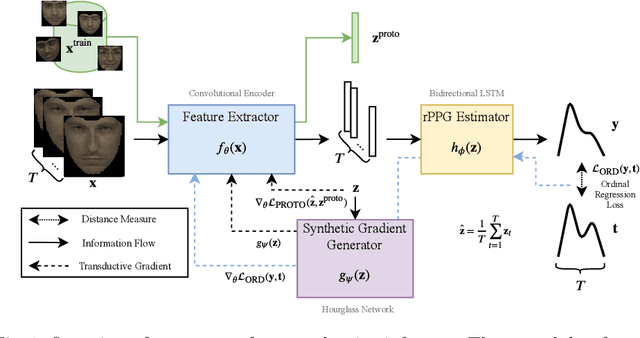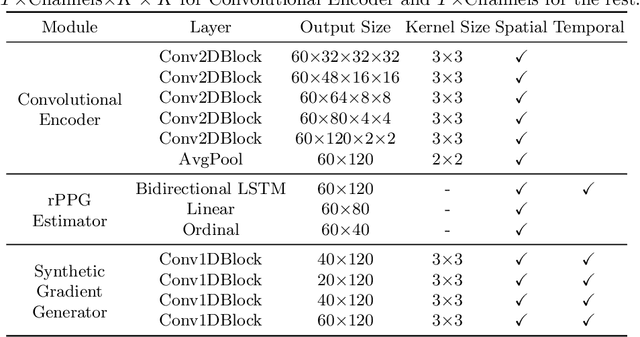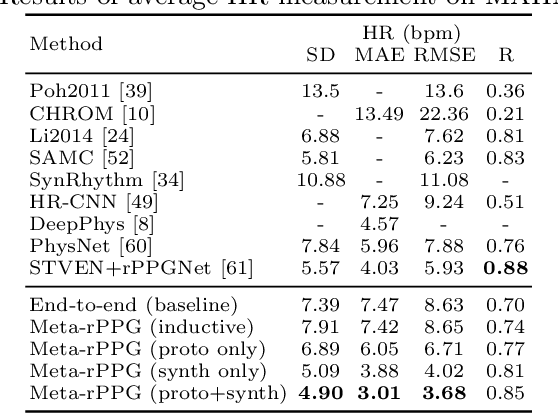Meta-rPPG: Remote Heart Rate Estimation Using a Transductive Meta-Learner
Paper and Code
Jul 14, 2020



Remote heart rate estimation is the measurement of heart rate without any physical contact with the subject and is accomplished using remote photoplethysmography (rPPG) in this work. rPPG signals are usually collected using a video camera with a limitation of being sensitive to multiple contributing factors, e.g. variation in skin tone, lighting condition and facial structure. End-to-end supervised learning approach performs well when training data is abundant, covering a distribution that doesn't deviate too much from the distribution of testing data or during deployment. To cope with the unforeseeable distributional changes during deployment, we propose a transductive meta-learner that takes unlabeled samples during testing (deployment) for a self-supervised weight adjustment (also known as transductive inference), providing fast adaptation to the distributional changes. Using this approach, we achieve state-of-the-art performance on MAHNOB-HCI and UBFC-rPPG.
 Add to Chrome
Add to Chrome Add to Firefox
Add to Firefox Add to Edge
Add to Edge